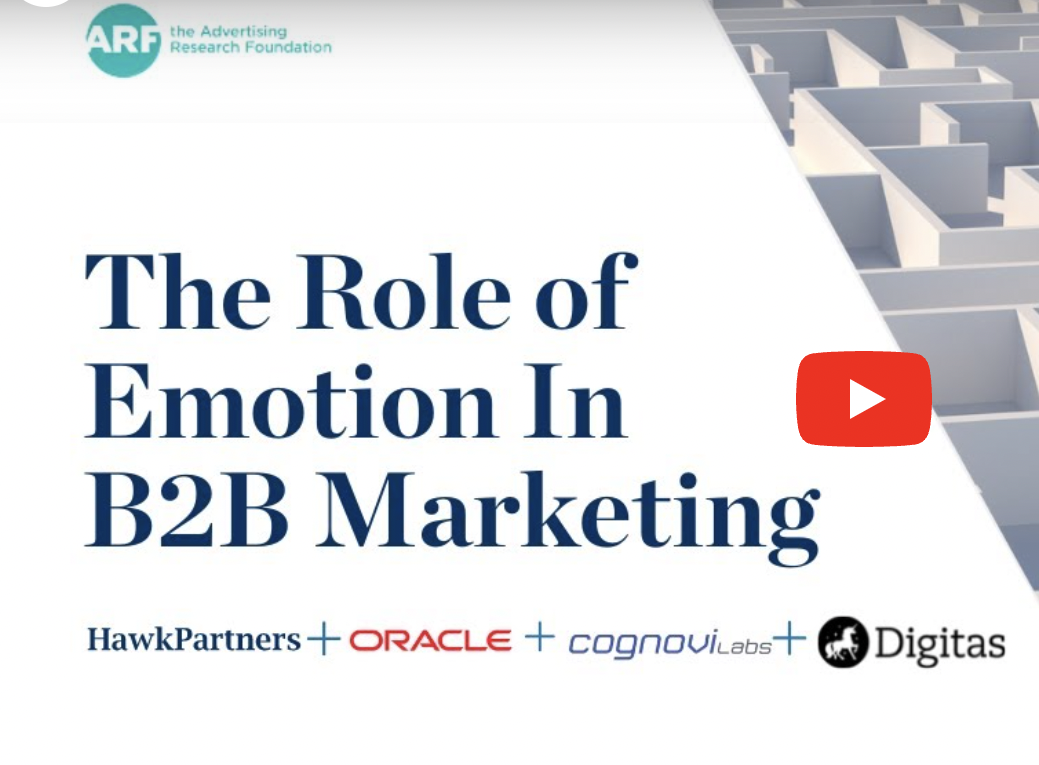Why is B2B decision making emotionally charged? What role do information asymmetries and cognitive biases play in the way we assess value and risk, and build relationships of trust with our own buying committees?
In this webinar, I share my perspective on these topics. I start speaking at 18:03, but encourage you to listen to the entire program as I learned quite a bit from listening to the other speakers.
Here’s a quick reference of the key topics I cover:
- Setting the stage: business decisions are high stakes decisions that have implications on business performance and personal careers
- Two major decision making flaws 1) information asymmetries and 2) cognitive biases
- Three types of trust: 1) buying committees to spread computational load, 2) peer groups in similar situations, and 3) trust in third parties, analysts and media
- Information asymmetry has always benefited corporations with heavy resources, but today’s democratization of information is nullifying that effect. (we need to get ready for the changing shape of this asymmetry, e.g. impact of AI)
- The need for balance between marketing and sales is a constant—but the top of the funnel is where emotional connections are started, so marketers need to be deliberate with brand plays
- Marketers need to think about the “long game,” nurturing communities and thought leadership that props uptake brand’s leadership position while advancing the industry at large
- The vast majority of our audience is out of market at any given time—which reinforces the need to develop brand awareness and perception
- Understand the audience deeper than macro-level insights, think like an anthropologist to go beyond general targeting parameters and think about audience mindset
- Team Theory establishes the role of distributed decision making and explains the concept of the buying committee. Herbert Simon said humans operate under “bounded rationality,” they are “satificers” (bridging together satisfactory and sufficient because we don’t maximize)
- Communications should balance Emotional and Logical decision making factors. Empathetic communications that show we understand the buyer an messages of irrefutable value to de-risk the decision
